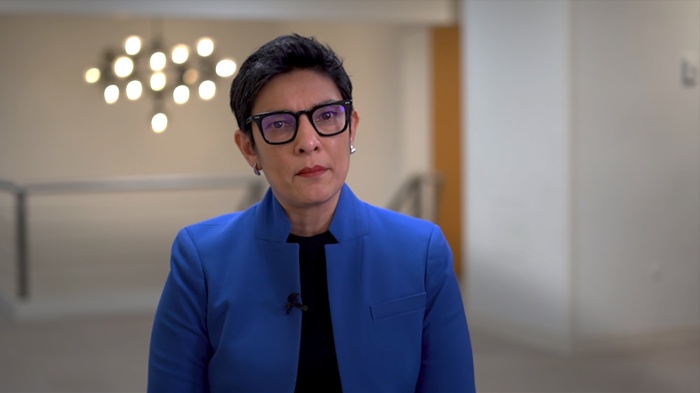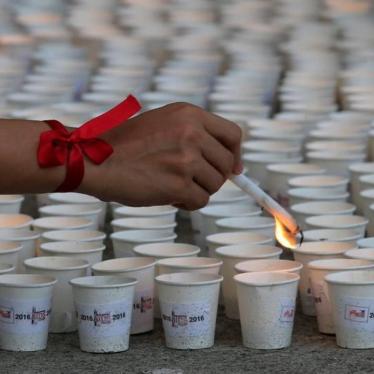(New York) – Global leaders have failed to take strong stands to protect human rights during 2023, a year of some of the worst crises and challenges in recent memory, with deadly consequences, Human Rights Watch said today in its World Report 2024. Governments should stop engaging in transactional diplomacy and do their utmost to uphold universal human rights principles.
Renewed armed conflict between the Israeli government and Hamas caused tremendous suffering, as did conflicts in Ukraine, Myanmar, Ethiopia, and the Sahel. The year 2023 was the hottest since global records began in 1880 and the onslaught of wildfires, drought, and storms wreaked havoc on communities from Bangladesh to Libya to Canada. Economic inequality rose around the world, as did anger about the policy decisions that have left so many people struggling to survive.
“The international system that we rely on to protect human rights is under threat as world leaders look the other way when universal principles of human rights are violated,” said Tirana Hassan, executive director at Human Rights Watch. “Every time a country overlooks these universal and globally accepted principles, someone pays a price, and that price is sometimes peoples’ lives.”
In the 740-page World Report 2024, its 34th edition, Human Rights Watch reviews human rights practices in more than 100 countries. In her introductory essay, Executive Director Tirana Hassan says that 2023 was a consequential year not only for human rights suppression and wartime atrocities but also for selective government outrage and transactional diplomacy that carried profound costs for the rights of those not in on the deal. But she says there were also signs of hope, showing the possibility of a different path, and calls on governments to consistently uphold their human rights obligations.
Governments’ double standards in applying the human rights framework not only put countless lives at risk, but they chip away at trust in the institutions responsible for enforcing and protecting rights, Human Rights Watch said. When governments are vocal in condemning the Israeli government’s war crimes against civilians in Gaza but silent when it comes to Chinese government crimes against humanity in Xinjiang, or demand international prosecution for Russian war crimes in Ukraine while undermining accountability for US abuses in Afghanistan, they weaken the belief in the universality of human rights and the legitimacy of the laws designed to protect them.
Governments have found it easier to disregard human rights issues in the international arena in part because their violations of human rights at home have gone unchallenged by the international community, Human Rights Watch said.
The human rights and humanitarian crises have led many to question the effectiveness of the human rights framework, when abusive governments are able to benefit from the lukewarm endorsement of a rights approach by more democratic and rights-respecting governments, Human Rights Watch said. Civil society organizations, grassroots movements, and human rights defenders can help to re-establish the human rights framework as the roadmap to building thriving, inclusive societies.
Many governments that condemned Hamas’ war crimes have been reserved in responding to those by the Israeli government. The unwillingness to call out Israeli government abuses follows from the United States and most European Union member countries’ refusal to urge an end to the Israeli government’s 16-year closure of Gaza.
Tradeoffs on human rights in the name of politics are clear when many governments fail to speak out about the Chinese government’s intensifying repression. Chinese authorities’ cultural persecution and arbitrary detention of a million Uyghurs and other Turkic Muslims amount to crimes against humanity, yet many governments, including in predominantly Muslim countries, stay silent.
In Sudan, which descended into armed conflict in April 2023 when the two most powerful Sudanese generals began battling each other for power, the United Nations has failed to stop massive abuses against civilians, most notably in the Darfur region. The UN Security Council closed its political mission in Sudan at the insistence of the Sudanese government, ending what little remained of the UN’s in-country capacity to protect civilians and publicly report on the rights situation. It has also done nearly nothing to tackle the Sudanese government’s intransigence in cooperating with the International Criminal Court (ICC).
In the US, President Joe Biden has shown little appetite to hold responsible human rights abusers who are key to his domestic agenda or those in China's sphere of influence. US allies like Saudi Arabia, India, and Egypt continue to violate the rights of their people on a massive scale.
The EU has circumvented its human rights obligations, pushing asylum seekers and migrants back to other countries or striking deals with abusive governments like Libya and Turkey to keep migrants out. Democratic governments in the Asia-Pacific region, including Japan, South Korea, and Australia consistently deprioritize human rights in the name of assuring military alliances and trade.
Under Prime Minister Narendra Modi, India’s democracy has slid toward autocracy, with authorities targeting minorities, tightening repression, and dismantling independent institutions.
In Tunisia, President Kais Saied has eliminated checks and balances. El Salvador’s President Nayib Bukele has manipulated high levels of crime for a security crackdown to grab and consolidate power. In Bangladesh, Prime Minister Sheikh Hasina’s government ordered the arrest of over 10,000 opposition leaders and supporters ahead of the January 2024 election.
But just as these threats are interconnected, so too is the power of the human rights framework to protect people’s freedom and dignity.
In a milestone decision, in November, the International Court of Justice ordered the Syrian government to prevent torture and other abuses. The Japanese parliament passed its first law to protect lesbian, gay, bisexual and transgender people from “unfair discrimination.” In Mexico, a civil society coalition persuaded Congress to pass a law establishing full legal capacity, benefiting millions of people with disabilities and older people.
In March, the ICC issued arrest warrants for Russian President Vladimir Putin and his children’s rights commissioner for war crimes relating to the forcible transfer of children from occupied territories of Ukraine to Russia. Brazil’s Supreme Court upheld all Indigenous peoples’ rights to their traditional lands, one of the most effective barriers against deforestation in the Amazon.
And in November, the United Kingdom’s highest court unanimously found that Rwanda is not a safe third country for the government to send asylum seekers, striking down an agreement that effectively shifted the UK’s asylum responsibilities to Rwanda.
“Human rights crises around the world demonstrate the urgency of applying longstanding and mutually agreed principles of international human rights law everywhere,” Hassan said. “Principled diplomacy, by which governments center their human rights obligations in their relations with other countries, can influence oppressive conduct and have a meaningful impact for people whose rights are being violated.”









